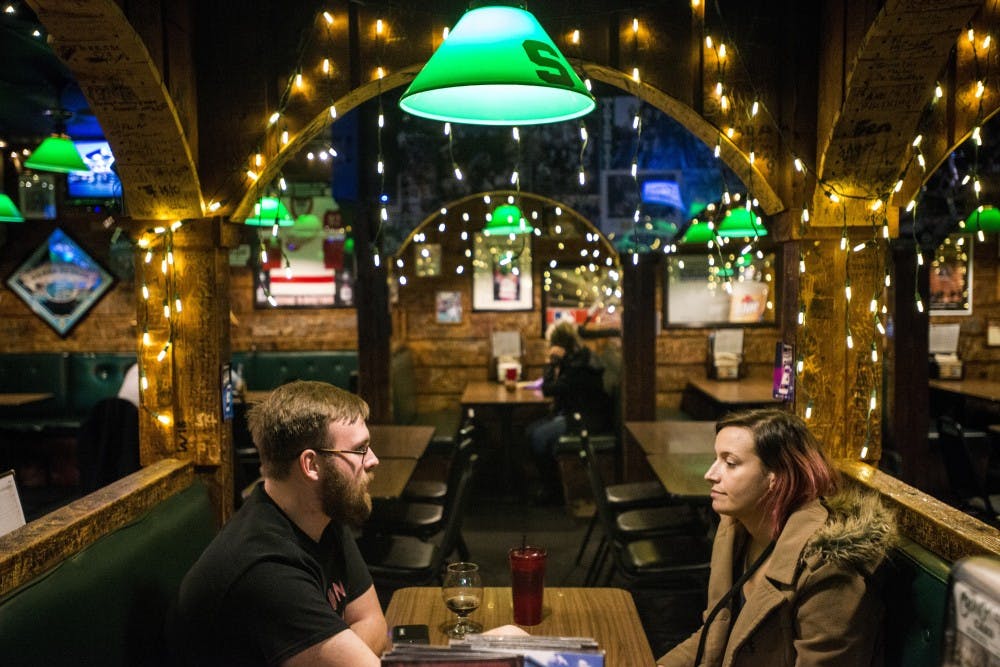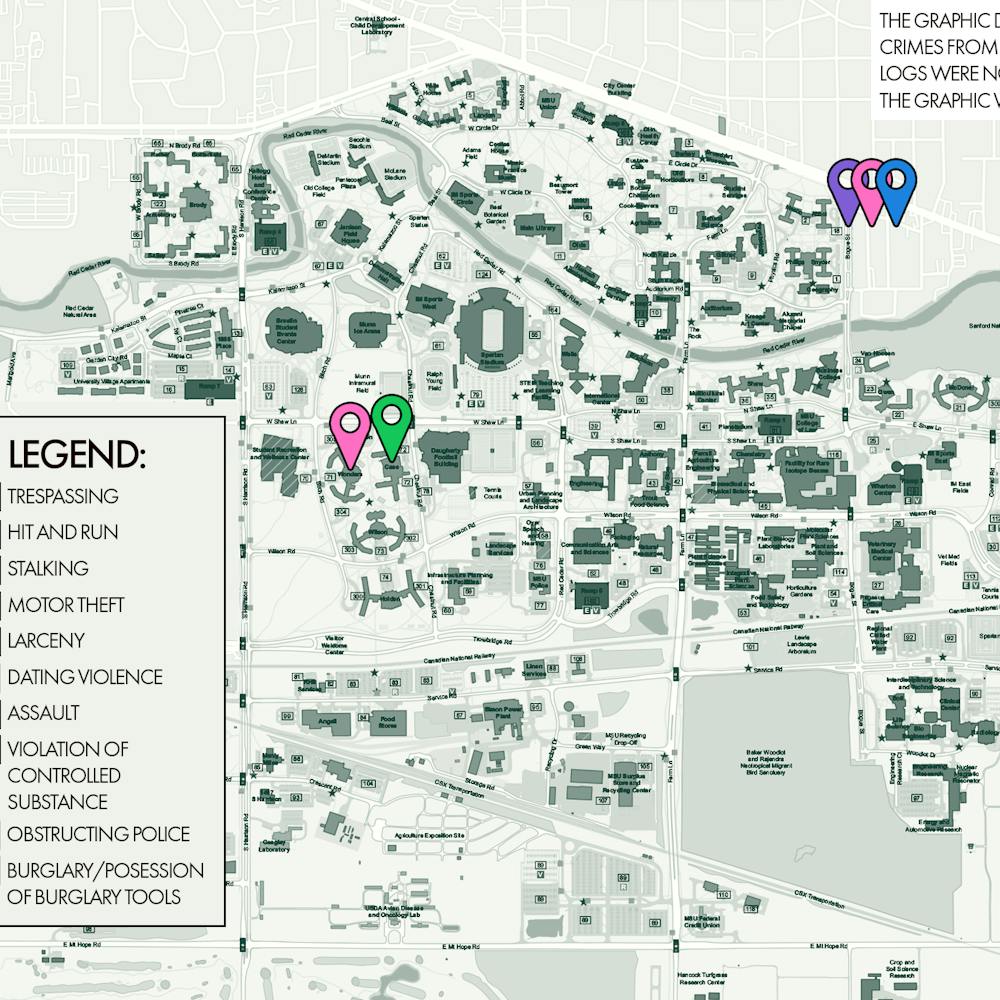An ordinance that, in the event of relocation, would maintain the grandfathered status of four alcohol-serving restaurants currently exempt from East Lansing’s '50/50 rule' is in East Lansing City Council’s pipeline.
The Peanut Barrel, P.T. O’Malley’s, Rick’s American Café and The Riv are currently exempt from the rule because they have not relocated since the rule’s inception.
Council’s consent agenda for its Feb. 28 meeting includes setting a hearing for April 11 for Ordinance 1396, drafted at the request of Mayor Mark Meadows.
The 50/50 rule is a 1989 ordinance that requires restaurants that sell alcohol to derive at least 50 percent of their revenues from food sales. City Manager George Lahanas said the rule was enacted to ensure East Lansing has restaurants and not just bars. Businesses report their income to the city on a quarterly basis to show they are in compliance with the rule, Lahanas said.
The 50/50 rule impacts businesses in different ways. While The Peanut Barrel currently operates exempt from the rule, owner Joe Bell said he wouldn’t have to do anything differently if subjected to it.
“We have a business plan, so to speak, and we’ve stuck to that plan since 1980, and I would say with the exception of an occasional quarter here and there, our business has legitimately … been above 50 percent food since that time period," Bell said.
Though he said the rule does not greatly impact him, Bell hinted he would support the proposed ordinance.
“I think if you’re grandfathered in, you’re grandfathered in,” Bell said. “I’ll leave it at that.”
Mike Krueger, the owner and general manager of Crunchy’s, said he would run things the same way if he were exempt from the rule and he doesn’t have a problem with the proposed ordinance.
“For us, it’s not really a hindrance to our business, we focus on our food here probably a lot more than other places do, so I can understand why it could be a hindrance to some people’s business model because there’s a much higher profit margin on alcohol than there is on food," Krueger said.
Lou and Harry’s Bar/Grill co-owner Scott Rolen said his business was created for food first, with the Grand River Avenue location being the only of three Lou and Harry’s restaurants with a liquor license. Despite this, Rolen said the 50/50 rule has complicated business and given it an "added stress."
“We always like to push our food sales and everything like that regardlessly, but the hardest part is on a Michigan State tailgate when we have all these people coming out to drink and hang out all day and night," Rolen said. "You see sales for alcohol going way up and you start getting nervous because you've got to match that for food sales, and it’s really tough to do."
Rolen said keeping to the 50/50 rule is tough, especially with the rise in popularity of pricier craft beers.
“If someone comes in and orders three $8 beers or two $8 beers and dinner, already they’re out of the range,” Rolen said. “Maybe 60/40 or something like that, I think that would be a much better attitude, I think people could get on board with that a lot better.”
A method Lou and Harry’s uses to abide by the rule is to focus on lunch hours. Rolen said Lou and Harry’s is open for lunch seven days a week with food-only specials. Only food specials are offered during happy hour as well, with no discounts on liquor, Rolen said.
“Because people don’t drink as much at lunch obviously, we try to push a really hard lunch special to get a good lunch crowd in there, and that's what we get a lot of our food sales from is during that time,” Rolen said.
Complications notwithstanding, Rolen said Lou and Harry’s would not be run any differently were it exempt from the rule.
“Lou and Harry’s is a food-driven restaurant to begin with, so I’d be doing the same things anyways,” Rolen said. “If it was more of a bar-type atmosphere I’d be doing things differently, because in East Lansing you've really got to push food hard … for Lou and Harry’s, I’d be doing everything the exact same.”
However, Rolen said he doesn’t think the proposed ordinance would be fair.
Support student media!
Please consider donating to The State News and help fund the future of journalism.
“I understand being grandfathered in, of course, it’s the people who have been here for long enough, they, I feel like, have earned that, but if they were to move, I would strongly feel that they should have to abide to the special use permit that everyone else does,” Rolen said
Discussion
Share and discuss “Restaurants weigh in on impact of 50/50 ordinance ” on social media.







